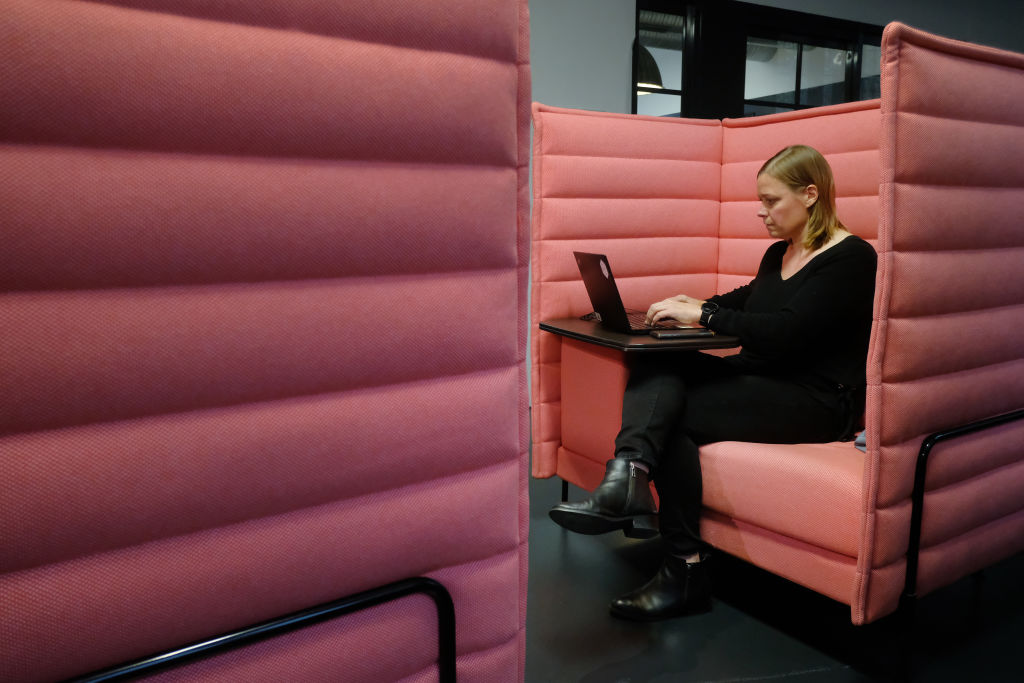Women looking out for Gen Z at work are being burnt out by being a ‘Team Mum’

Workplace politics has changed over the last few years, but the Team Mum’s are still there and looking out for Generation Z, writes Eliza Filby.
You may not be familiar with the term “Team Mum” in the workplace but I’m sure you will have encountered her. She’s a staple in almost every business. She’s the emotional bedrock, the one to whom everyone turns when they have problems, whether personal or professional. She’s the fixer. She tends to exude certain qualities: approachable, informal, always “on” and reliable, with an almost devotional approach to being everyone’s problem solver – Think Joan Harris in Mad Men.
I’ve spent the past two years talking to companies around the world on the future of flexible working and while the long term impact of hybridity will take years to filter through, one thing is becoming clear: Team Mums are absolutely pivotal in making flexible working work for everyone’s benefit – except their own.
I use the term Team Mum because these individuals are disproportionately – but not exclusively – women. They also tend to be towards middling age and invariably, in some kind of management position. They do not necessarily have children but do take on a parental identity at work. I have met some “Team Dads”, but not many.
The success of flexible working was always going to rest in the hands of management rather than centralised leadership. But it is becoming clear that so much of the emotional and mentoring work is landing on the plate of the sacrificial few who are willing to take the time and expend the emotional energy required to absorb and solve other people’s problems. As we encounter each other less in the office and are not afforded the time to forge new bonds or friendships with a suitable range of peers, mentors and managers it is no surprise that more and more of the burden is directed towards that one individual upon whom we can rely.
Nowhere is Team Mum’s role more important than in parenting the new Gen Z recruits who entered the world of work during or in the aftermath of Covid, and whose needs were not always suitably met by companies. Those recruits whose networks, learning and socialisation have been curtailed and who, as a generation, are also much more predisposed than any other cohort before them to expect, and value, a more humane, personalised approach to management. These digital natives are, ironically, the generation that prizes face to face contact more than any other in the workplace. Although we must avoid lazy tropes about women being naturally emotionally intelligent managers we can also presume that in an age when mental health is recognised, most of the informal help that is being offered to young people in our workplaces is being offered disproportionately by Team Mums.
I recognise this dynamic of parenting young people at work because this was once me. In my former life as a university lecturer, I slotted comfortably into my Team Mum identity, studiously learning the names of the 150 students under my supervision, spending additional hours holding their hands through the dissertation process. Word got round of my commitment and I found myself supervising students who weren’t even signed up to my modules. Ultimately, this was to my own detriment. These efforts weren’t being recognised by the higher powers and what’s more it was stopping me from finishing my book and focusing on my own goals. In the end, I left academia altogether.
And that is the real danger here for both companies and Team Mums themselves. Something snaps. So what can be done? Team Mums need to recognise the dangers of being a people pleaser and fixer at work, and be supported in setting boundaries. But that is almost impossible if companies don’t recognise the need to invest time and money into helping all staff, especially Gen Z, in generating their network and support base at work. And even more crucially, firms need to create a culture in which Team Dads are as recognisable, approachable and effective as Team Mums. Informal support and management structures will always exist, but we can’t simply rely on one or two parent figures to oil the wheels of office life. Team Mums – and Dads – need a break.
